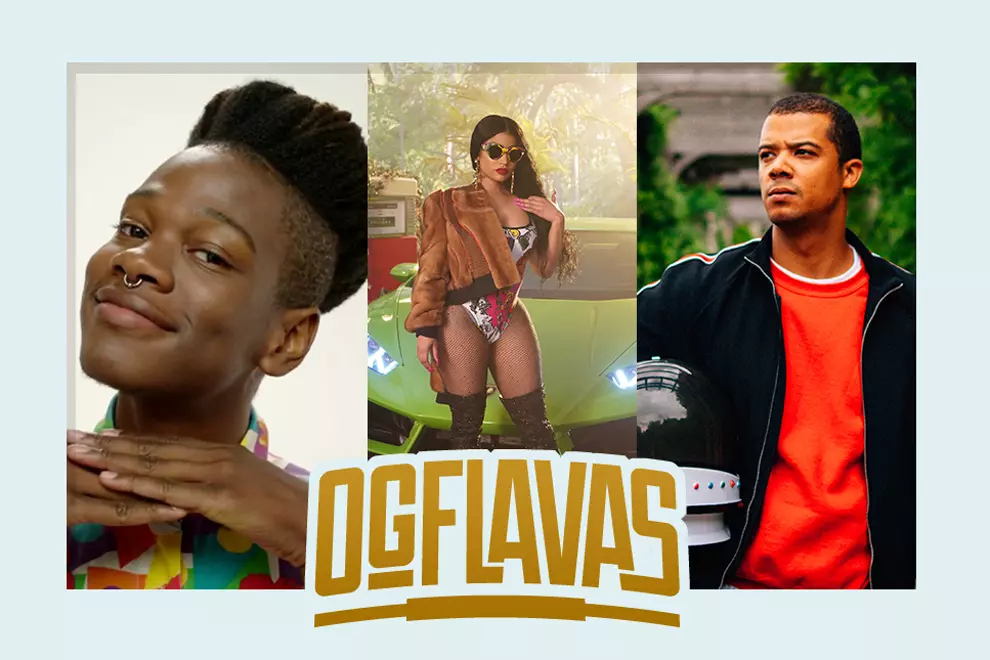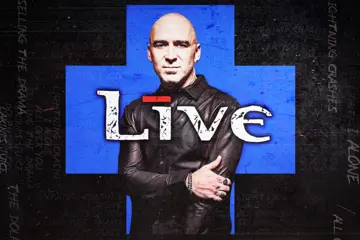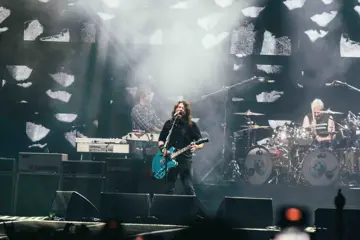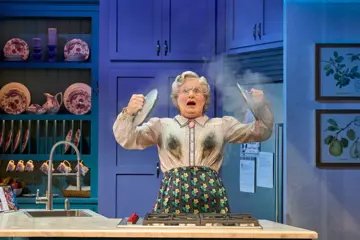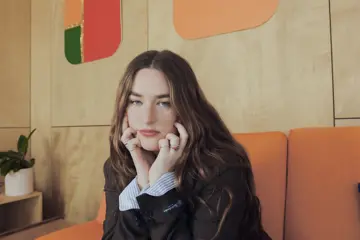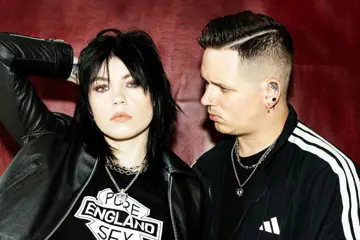The big culture media on both sides of the Atlantic have published 'Best Of The Decade' album lists – even Time. This listmania has revealed a surprising homogeneity concerning R&B and hip hop – Kanye West, Kendrick Lamar, Frank Ocean, Beyoncé and Solange projects all welcomingly ranked high. Rihanna's 2016 ANTI was an incremental fave, critics belatedly appreciating her evolution as an album artiste – like Bey. And, gratifyingly, D'Angelo's Black Messiah (with The Vanguard), released in late 2014, wasn't forgotten. Mind, there are weird omissions – lists inherently provocative. Pitchfork didn't rate any James Blake LPs in its retrospective, 'The 200 Best Albums Of The 2010s', despite the Brit post-dubstep soulster emanating as the decade's most zeitgeist sonic auteur (he surely impacted David Bowie's Blackstar). In 2018 Blake called out Pitchfork on Twitter for a flippant application of the descriptor "sad boy music" to his single Don't Miss It, but could they really be so petty as to snub him? (Pitchfork also excluded blockbusters by those UK grime heroes Skepta and Stormzy.)
OG Flavas would place West's iconoclastic opus My Beautiful Dark Twisted Fantasy at #1, as it augured the conceptual ambition that defined urban music in the 2010s. But, instead of an obvious list, here are 25 cult R&B, soul and hip hop albums that have largely been erased, neglected or obscured – internationally and at home. Consider it an anti-list. Inevitably, OG Flavas has forsaken some LPs due to sheer quantity (John Legend's 2013 Love In The Future was his finest hour).
Sadly, this is the final OG Flavas column for The Music. Launched as Flavas by another street press title in the '90s to cover a diverse and increasingly global R&B and hip-hop scene, OG Flavas is now Australia's longest-running urban column, if not the country's longest-running music column, period. OG Flavas has history. The column was once embroiled in a feud with triple j over its programming of R&B and hip hop (they decided JAY-Z was too playaristic). It was then among the earliest to support (well, stan) Solange as an avant-soulster when in 2008 she delivered Sol-Angel And The Hadley St Dreams. Last year, OG Flavas secured an exclusive interview with the UK's Raleigh Ritchie. I'd like to sincerely thank my readers over the years – including Chris Rock (!), who scoped out an edition on Eminem. Oh, and be sure to follow me on Twitter (@therealcyclone).
1. Laura Mvula, Sing To The Moon (2013)
The UK's Laura Mvula – a classically trained musician – presented the decade's most slept-on innovative debut in Sing To The Moon, as epitomised by her sublime single Green Garden. The album traversed choral, gospel, symphonic, big band, pastoral and prog-rock, transcending conventional genre categorisation (notably, Mvula recorded with Rumer producer Steve Brown). But, Mercury Prize nomination aside, Mvula's auteur soul wasn't recognised by connoisseurs in the same way as James Blake's or, for that matter, Janelle Monáe's. Revisit.
2. Tinashe, Aquarius (2014)
Don't miss a beat with our FREE daily newsletter
Tinashe is finally being celebrated as an R&B/pop trendsetter with her independently released album Songs For You. Back in 2014, the star laid down a trap 'n' B blueprint with Aquarius on Sony. Tinashe enjoyed a hit with the DJ Mustard-helmed banger 2 On, featuring ScHoolboy Q. She cut the beguiling Bet with DJ Dahi and Blood Diamonds (Dev "Blood Orange" Hynes supplied the guitar solo). And she made euphoric contra-EDM with StarGate in Feels Like Vegas. Unfortunately, Aquarius was too ahead of its time to chart majorly. Coincidentally, Tinashe dropped Aquarius soon after FKA twigs' LP1 yet, at points, twigs' latest, Magdalene, echoes her outré trapwave.
3. Sietta, The Invisible River (2014)
The Sydney label Elefant Traks has developed into a credible platform for futurist R&B, with The Herd's vocalist Jane Tyrrell airing 2014's low-key Echoes In The Aviary. Darwin's alt-soul combo Sietta – Caiti Baker and James Mangohig – debuted on Elefant Traks with 2011's The Seventh Passenger, showcasing their songwriting nous and '90s R&B affinities. The sequel, The Invisible River, was bolder, the duo bringing a tropical heat to post-dubstep soul – cue the single Let It Go, trip-hop gospel. That year, Sietta also collaborated with Briggs on Sheplife (plus his track Purgatory flips Let It Go).
4. ZAYN, Icarus Falls (2018)
The music media has raved about Harry Styles' trajectory post-One Direction, but progressively diminished Zayn Malik's – regrettable. For his solo entrance, Mind Of Mine, Malik linked up with Frank Ocean's cohort Malay to create avant 'n' B, elevated by his pliable vocals. Malik's maximalist double-album, Icarus Falls, was even more revelatory, exploratory and expansive. The singles alone ranged from the sensuous '80s soul jam Let Me to the funk-rock Sour Diesel to the Nicki Minaj-amplified EDM banger No Candle No Light. The set's apex? The cosmic bass ballad Flight Of The Stars, which Malik recorded with the little-known Saltwives.
5. Miguel, Kaleidoscope Dream (2012)
The Californian Miguel is often overlooked as an alt-R&B trailblazer in favour of Frank Ocean and The Weeknd, although he premiered earlier with 2010's sleeper All I Want Is You. In fact, many decade-end lists have included his second album, Kaleidoscope Dream – only Miguel deserves greater props. With Kaleidoscope Dream, Miguel integrated vintage R&B and illwave, while instilling a nouveau psychedelia. The album established Pop & Oak as go-to studio-types (they'd work on Kehlani's SweetSexySavage). Miguel's self-produced single Adorn was a slinky boudoir homage to Marvin Gaye's Sexual Healing. Miguel is the 2010s' Prince.
6. Travis Scott, Rodeo (2015)
Oddly, the Houston, Texas post-rapper, singer and producer Travis Scott is underrated as a 2010s renegade – the media rather extolling his Harlem peer A$AP Rocky. Any of Scott's albums could be listed here, even his carnivalesque art-rap masterpiece Astroworld. However, Scott's acid-trap debut, Rodeo, instituted his Ye-level concepts, innovative sonics, and imaginative curation (Flying High has input from Pharrell Williams and the chillwaver Toro y Moi). The single Antidote is now canon, but Maria I'm Drunk remains a curio with Justin Bieber rapping beside La Flame himself and Young Thug. Rodeo's pinnacle was the DJ Dahi-stamped 90210 – its epic beat switch and narrative evoking Frank Ocean's Pyramids.
7. Raleigh Ritchie, You're A Man Now, Boy (2016)
The Brit Jacob Anderson is beloved for his role as the righteous Grey Worm in HBO's fantasy saga Game Of Thrones. But, as Raleigh Ritchie, he records a rare psychedelic R&B, indie and pop hybrid. On his introductory You're A Man Now, Boy, the Bristol native connected his hometown's heritage of trip-hop – characterised by its interiority, liminality and orchestral crests – and the new existential and experimental hip hop from the US (Top Dawg Entertainment's Sounwave was among the producers). You're A Man Now, Boy was a droll, relatable and confessional coming-of-age album. Stronger Than Ever achieved anthemic status. Stormzy appeared on the groove Keep It Simple – and, in turn, Anderson graced Gang Signs & Prayer (he accompanied Stormzy at Glastonbury this year).
8. Nicki Minaj, Pink Friday (2010)
Nicki Minaj will go down as a feminist icon, challenging the male domination of hip hop – and opening the way for Cardi B, Lizzo and Megan Thee Stallion. Critics typically cite The Pinkprint as Minaj's key work. But the Queen Of Rap's debut, Pink Friday, demonstrated her versatility – being mythically street, zanily theatrical, and hyper-pop (the revved-up Super Bass was a mega-hit). Minaj chose as guests Eminem, Rihanna, her labelmate Drake and… Natasha Bedingfield. Pink Friday dropped the same week as Kanye West's My Beautiful Dark Twisted Fantasy, which spotlighted Minaj on Monster. Ye blessed Pink Friday, too, rapping on Blazin (which, flossily, samples Simple Minds' Don't You (Forget About Me)).
9. Kids See Ghosts, Kids See Ghosts (2018)
Kanye West reunited with his 2000s protégé Kid Cudi for the eponymous joint project Kids See Ghosts – part of the Wyoming Sessions series (which also entailed Ye). The pair ventured into hip hop psychedelia, bonding over their mental health journeys. Ye allowed Cudi to lead as vocalist. The apotheosis is Reborn, modern blues with Cudi's signature hums. Especially symbolic is Cudi Montage, which salvages Kurt Cobain's Burn The Rain.
10. Bobby Womack, The Bravest Man In The Universe (2012)
Cleveland, Ohio's Bobby Womack was an R&B GOAT. In the '60s, he fronted The Valentinos, mentored by Sam Cooke. When, after Cooke's tragic demise, Womack swiftly wed his widow, he was embroiled in a scandal that reverberated through the rest of his career. Solo, he had mixed fortunes (a prescient '70s country-soul LP was dismissed). Womack experienced a transitory resurgence in the '80s with his single If You Think You're Lonely Now. Despondent, he eventually slipped into semi-retirement. Damon Albarn then approached Womack for Gorillaz' Plastic Beach and he reached a young audience, ensuring his eternal cool. Albarn co-produced Womack's comeback, The Bravest Man In The Universe, alongside XL Recordings boss Richard Russell (who'd facilitated Gil Scott-Heron's I'm New Here). The album intertwined subway electro-soul with earthy gospel and blues – the single Please Forgive My Heart a delicate ballad. Womack actually duetted with Lana Del Rey on the modish Dayglo Reflection. The Bravest Man… charted in the UK, with its enduring love of Northern soul. Womack passed in 2014.
11. Roes (formerly known as Angel Haze), Dirty Gold (2013)
The charismatic Roes, formerly known as Angel Haze, emerged at the same time as Azealia Banks, impressing with an intense wordplay and flow. The Detroit MC was contrasted to (emo) Eminem. Roes would also represent a vital queer voice in hip hop, identifying as agender and pansexual. Alas, the roll-out of their first album, Dirty Gold, was chaotic. At the end of 2013, Roes leaked the LP, frustrated at label stalling. It was granted an official issue on 30 December – not ideal for media coverage. Roes followed Nicki Minaj in pursuing pop, rock and EDM (A Tribe Called Red was produced by the Canadian team of that name). They made the powerful Battle Cry with Sia and Greg Kurstin. But, ultimately, Dirty Gold resonated because of its emotional depth, Roes chronicling a troubled upbringing and trauma on songs like the poignantly poetic Black Dahlia.
12. Drake, More Life (2017)
The Canadian rapper/singer Drake was omnipresent in the 2010s as streaming took off. The 6 God's More Life mixtape – which he cannily marketed as "a playlist" – may have been his most audacious collection. Drake acknowledged urban music's new globalism and, with it, the surge of African diaspora styles such as dancehall, grime and Afrobeat. Saliently, he exposed UK street artists – Giggs and Skepta – to American listeners. Drake likewise reconfigured the South African deep houser Black Coffee's Superman as Get It Together, adding Jorja Smith. The R&B bop Passionfruit, sampling the live banter of the Detroit DJ Moodymann, is a Drizzy essential.
13. Plan B, Ill Manors (2012)
The East London polymath Plan B (Ben Drew) rose as a street MC in the 2000s, deviating into retro-soul. But, grounded in British hip hop, his truly gamechanging project was Ill Manors – the soundtrack to a film he wrote and directed. The title-track served as a potent protest song, Drew detailing the fall-out from the Tories' austerity regime in working-class communities. The album was musically compelling, too, Drew collaborating with Al Shux and charging into dubstep. Punk poet John Cooper Clarke cameoed, but Drew met his match in the grime MC Kano on Live Once, about weaponised linguistics. Ill Manors is as relevant as ever.
14. The Weeknd, Kiss Land (2013)
Though The Weeknd and Frank Ocean broke out in tandem, Ocean was deemed the music media's darling with his cerebral and autobiographical narratives, as The Weeknd courted commercial ubiquity – the poptimism critical mission failing him. Today The Weeknd is rated for 2011's trilogy of mixtapes – specifically House Of Balloons, subliminal nocturnal R&B. Nevertheless, his pop forays are transgressive (even if he lapses into toxic masculinity). The Canadian's debut proper, Kiss Land, encountered a muted response on release. But the transitional album, with Drake the solitary guest, captured The Weeknd's metaphysical ambivalence towards fame and #tourlyfe. And songs such as the cinematic and melancholy Tears In The Rain hold up.
15. Jamie Woon, Mirrorwriting (2011)
The British urban scene flourished in the 2010s. At the decade's start, post-dubstep soul, or night bus, was the 'it' subgenre – with Jamie Woon, James Blake and Jessie Ware. Woon, a former folkie, proved elusive over time. But his inauguration, Mirrorwriting, stands with its understated, minimalist electro-soul. Crucially, Woon worked with the dubstep pioneer Burial on select songs like Night Air.
16. Bryson Tiller, Trapsoul (2015)
A native of Louisville, Kentucky, Bryson Tiller literally sprang from nowhere – his track Don't a SoundCloud phenom. Signing to RCA, Tiller unleashed Trapsoul. Curiously, he eschewed guests, not to mention big-name beatmakers, apart from Timbaland – who handled Sorry Not Sorry, another single. Tiller would (briefly) become a figurehead for R&B's counterpart to trap.
17. Raury, All We Need (2015)
The Atlantan teen singer/songwriter Raury materialised as a carefree, conscious and countercultural voice in R&B, pre-Khalid. His sensibilities folksy, country and psych, he fell somewhere between Arrested Development and those ATLiens OutKast. Raury generated buzz with 2014's mixtape Indigo Child (and the single God's Whisper), but his official debut, All We Need, was unfathomably disregarded. Raury realised his idiosyncratic vision, with contributions from Malay and Danger Mouse. Rage Against The Machine's Tom Morello lent his guitar skills to the '70s rocker Friends.
18. Sade, Soldier Of Love (2010)
The enigmatic British soul diva Sade was exceptionally influential in the 2010s, her quiet storm aesthetic pervasive in night bus and avant 'n' B (Rhye are oft-compared). In 2010 she unveiled Soldier Of Love, her first 'group' album in a decade. Wisely, Sade didn't so much as reinvent herself as subtly modernise, with Soldier Of Love, less loungey than dubby.
19. Jhené Aiko, Souled Out (2014)
Female artists were at the forefront of the avant 'n' B movement in the 2010s. But the Californian Jhené Aiko, aligned with No ID's ARTium Recordings, hasn't been remembered like Solange, SZA or even BANKS. Her debut, Souled Out, about epiphany, love and self, is a lost classic. Aiko transformed Sade-esque quiet storm, '90s R&B and neo-soul into something hazily hallucinogenic, ambient and street. Souled Out encompassed the single To Love & Die with No ID's Cocaine 80s collective.
20. Mark Ronson & The Business Intl, Record Collection (2010)
Mark Ronson isn't usually described as inventive, in spite of his acclaimed studio work with Amy Winehouse. The DJ/producer/musician followed 2007's covers set, Version, with his most multifarious enterprise, Record Collection, rediscovering '80s new wave. The A&R was wild, with Ronson pairing Wiley and Duran Duran's Simon Le Bon on the title-track. The New Yorker relished hipster hits with Bang Bang Bang (featuring Q-Tip and MNDR) and the Afrobeat-cum-ska Somebody To Love Me (Boy George and Andrew Wyatt). Regardless, the LP's coolest cut was the synth 'n' B Glass Mountain Trust with the retiring D'Angelo.
21. Hiatus Kaiyote, Choose Your Weapon (2015)
Melbourne boho-soul band Hiatus Kaiyote – led by Nai Palm – became tastemaker faves with 2012's album Tawk Tomahawk, initially self-released via Bandcamp. New York's Salaam Remi signed the quartet to his Sony imprint, Flying Buddha, repackaging Tawk Tomahawk with a remix of the jazzy Nakamarra featuring Q-Tip – subsequently nominated for Best R&B Performance at the Grammys, an Australian first. They returned with Choose Your Weapon, previewed by Breathing Underwater (which received another Grammy nod). Utilising synths, Hiatus Kaiyote consolidated their rep as future soul artisans. Along the way, they'd be sampled by Drake and Kendrick Lamar.
22. Shamir, Ratchet (2015)
In 2014, Shamir – a charming pop outlier from suburban Las Vegas – had an underground hit with the serendipitous hip-house throwback On The Regular. His sanguine debut, Ratchet, overseen by GODMODE's Nick Sylvester, offered more of the same with a disco-punk swagger. And Shamir performed a gorgeous gospel ballad, Darker. He toured Australia behind the album, joining 2016's Laneway.
23. Mariah Carey, Caution (2018)
Throughout the 2010s, seasoned stars defied generationalism, and resisted expectations that they manoeuvre into the middle of the road, with modish albums. Mary J Blige, the Queen Of Hip Hop Soul, solicited UK producers like Disclosure for The London Sessions. Then Neneh Cherry recorded two electro-soul LPs with Four Tet – latterly Broken Politics. Still, the super-diva Mariah Carey ambushed reviewers with Caution, intuitively contemporising her '90s hip hop soul and pop balladry. Caution's OMG moment was the deep cut Giving Me Life, a new wave collab with Slick Rick and Dev Hynes.
24. N'fa Jones, Black + White Noise (2014)
N'fa Jones – the former frontman of the Aussie rock-hop band 1200 Techniques – issued the solo album Cause An Effect in 2006, abiding by a trad boom-bap paradigm. Eight years on, he resurfaced with Black + White Noise on Drapht's boutique label The Ayems. This time, he revelled in a fluid, experimental impulse with jazz and future soul vibes, while exploring both personal and social themes. Jones collaborated with REMI's producers, Sensible J & Dutch, rapping and singing. The synth 'n' B Fighters with Sydney's Joyride was like Drake emulating OutKast.
25. Diddy – Dirty Money, Last Train To Paris (2010)
Sean "Diddy" Combs is associated with the '90s – and rap's shiny-suit era – yet he has been more adventurous in the new millennium. Indeed, the Bad Boy mogul embraced EDM early, cutting 2003's loosie Let's Get Ill with Kelis (who herself went dance on Flesh Tone, David Guetta directing the bizarrely radical Acapella). Diddy circulated the conceptual Last Train To Paris with Dirty Money's Dawn Richard (of Danity Kane) and Kalenna Harper. The album's narrative arc centred on a love affair in Europe. Ironically, with its new wave inflections, the project was closer to electroclash than EDM in spirit. Diddy and Dirty Money were bolstered by an array of illustrious vocalists, like Grace Jones, plus Anna Wintour in a cameo. That's clout.

